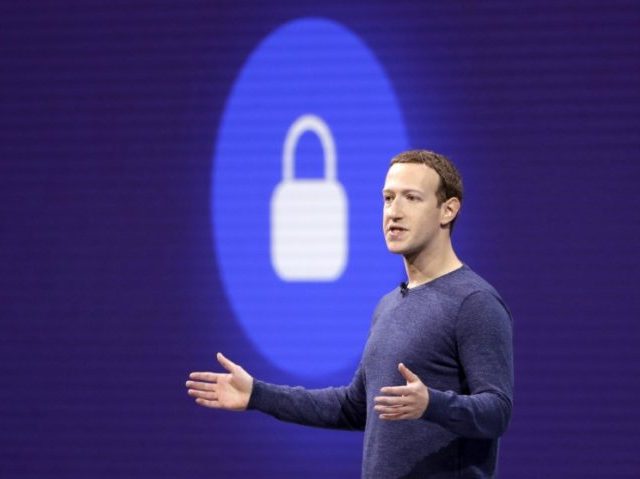Facebook co-founder Chris Hughes has called for the empire he helped Mark Zuckerberg to assemble to be broken up by the government. Taking it a step further, Hughes argues that the government should regulate big tech and control “acceptable speech” on social media.
In an op-ed published in the New York Times titled “It’s Time to Break Up Facebook,” Facebook co-founder Chris Hughes called for further government regulation of the very social media platform that he helped to launch. Hughes states that despite not working at Facebook for more than 15 years, he feels a sense of “anger and responsibility” following Facebook’s recent privacy scandals.
Hughes states that although he believes that Facebook CEO Mark Zuckerberg is a good person, he has become increasingly worried over decisions made by Facebook and Zuckerberg in recent years. Hughes writes:
Mark’s influence is staggering, far beyond that of anyone else in the private sector or in government. He controls three core communications platforms — Facebook, Instagram and WhatsApp — that billions of people use every day. Facebook’s board works more like an advisory committee than an overseer, because Mark controls around 60 percent of voting shares. Mark alone can decide how to configure Facebook’s algorithms to determine what people see in their News Feeds, what privacy settings they can use and even which messages get delivered. He sets the rules for how to distinguish violent and incendiary speech from the merely offensive, and he can choose to shut down a competitor by acquiring, blocking or copying it.
Mark is a good, kind person. But I’m angry that his focus on growth led him to sacrifice security and civility for clicks. I’m disappointed in myself and the early Facebook team for not thinking more about how the News Feed algorithm could change our culture, influence elections and empower nationalist leaders. And I’m worried that Mark has surrounded himself with a team that reinforces his beliefs instead of challenging them.
Hughes then states that government intervention is the key to protecting user privacy across Facebook, stating:
The government must hold Mark accountable. For too long, lawmakers have marveled at Facebook’s explosive growth and overlooked their responsibility to ensure that Americans are protected and markets are competitive. Any day now, the Federal Trade Commission is expected to impose a $5 billion fine on the company, but that is not enough; nor is Facebook’s offer to appoint some kind of privacy czar. After Mark’s congressional testimony last year, there should have been calls for him to truly reckon with his mistakes. Instead the legislators who questioned him were derided as too old and out of touch to understand how tech works. That’s the impression Mark wanted Americans to have, because it means little will change.
We are a nation with a tradition of reining in monopolies, no matter how well intentioned the leaders of these companies may be. Mark’s power is unprecedented and un-American.
It is time to break up Facebook.
Hughes doesn’t just want to break up the company, however, he wants the creation of an entirely new agency designed to regulate tech firms. Hughes argues this agency should also regulate free speech:
Just breaking up Facebook is not enough. We need a new agency, empowered by Congress to regulate tech companies. Its first mandate should be to protect privacy.
The Europeans have made headway on privacy with the General Data Protection Regulation, a law that guarantees users a minimal level of protection. A landmark privacy bill in the United States should specify exactly what control Americans have over their digital information, require clearer disclosure to users and provide enough flexibility to the agency to exercise effective oversight over time. The agency should also be charged with guaranteeing basic interoperability across platforms.
Finally, the agency should create guidelines for acceptable speech on social media. This idea may seem un-American — we would never stand for a government agency censoring speech. But we already have limits on yelling “fire” in a crowded theater, child pornography, speech intended to provoke violence and false statements to manipulate stock prices. We will have to create similar standards that tech companies can use. These standards should of course be subject to the review of the courts, just as any other limits on speech are. But there is no constitutional right to harass others or live-stream violence.
Hughes is not the first Facebook executive to speak out against the company. Former Facebook President Sean Parker discussed the negative psychological effects of social media in an interview with Axios in 2017. Parker, the founder and chair of the Parker Institute for Cancer Immunotherapy, spoke at an Axios event at the National Constitution Center in Philadelphia, where he discussed social media. Parker described himself as “something of a conscientious objector” to social media in general.
Parker described Facebook’s appeal as a “social-validation feedback loop” which exploits human psychology to keep users coming back to the app:
It’s a social-validation feedback loop … exactly the kind of thing that a hacker like myself would come up with, because you’re exploiting a vulnerability in human psychology. The inventors, creators — it’s me, it’s Mark [Zuckerberg], it’s Kevin Systrom on Instagram, it’s all of these people — understood this consciously. And we did it anyway.
Read Hughes’ full op-ed in the New York Times here.
Lucas Nolan is a reporter for Breitbart News covering issues of free speech and online censorship. Follow him on Twitter @LucasNolan or email him at lnolan@breitbart.com

COMMENTS
Please let us know if you're having issues with commenting.